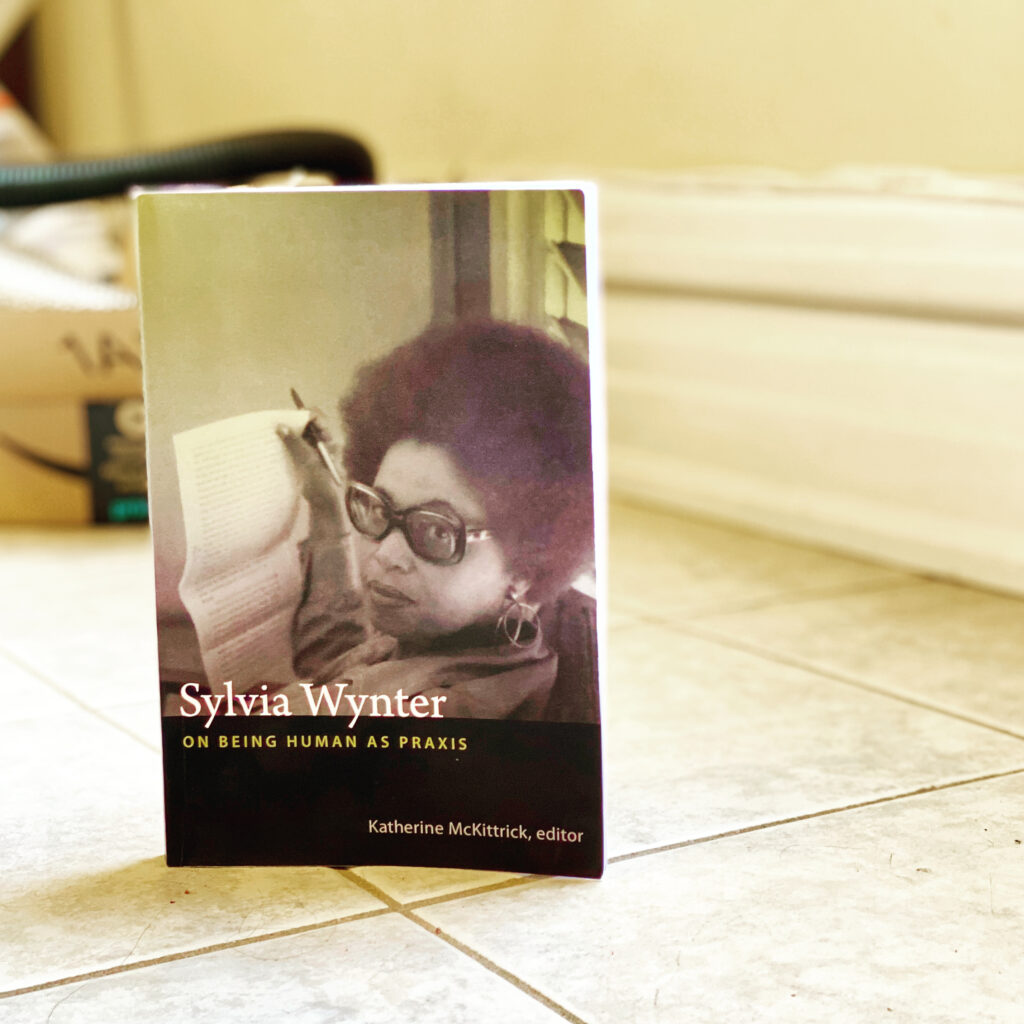
Scholarly. Focused on the work of radical Jamaican intellectual Sylvia Wynter. Includes a lengthy dialogue between the editor and Wynter that explores key elements of her work and thought, and then a series of essays which do a mix of laying out the basics, applying her work in specific areas, and extending it in various ways. I read this to get an introduction to Wynter’s ideas, which I had encountered in passing in a number of things I’ve read in the last few years but wanted to understand better because I may want to take up aspects of what she says in the chapter I’m writing at the moment.
My inclination and my historical practice when reviewing a book like this has often been to dive in and engage with its ideas in as substantive a way as I have time for, to compensate for the fact that I do this work outside of any sort of collective setting so have no opportunity for any of the other kinds of engagement that can help cement understanding and memory. I’ve done that quite a bit less in recent years, and I don’t think I will in this case, mostly because I’m already planning on engaging more deeply with at least some elements of it as I work through how to write my chapter. I will say that I’m very, very glad to have read this. There are quite a few of her key ideas that I find to be compelling, particularly the big picture stuff about what it means to be human, about the colonial/imperial origins of the social world and our practices of knowing, and about what that means for our violent and oppressive world today. There are some specifics in her theorization of how genres of the human take and maintain particular forms that I’m less convinced of, though for the most part in ways that don’t intrinsically undermine the bigger picture. As well, the ways that the other contributors extend her ideas are a bit uneven – no surprise, in a collection like this – but the majority are interesting and useful. And I feel quite uncertain about the implications of Wynter’s analysis for what we need to be doing here, now, together to create a world that is no longer under the dominion of Man but that fosters the flourishing of Wynter’s ecumenical vision of humanity.
Anyway. This is vital, radical, fascinating work. It’s a lot – it wasn’t a particularly difficult read, but I read it relatively slowly just because there was so much to think about. And, honestly, I think I’m only at the very beginning of grappling with the implications of these ideas, and with how they might shape our practices of being in and changing the world.
Originally posted by Scott on Goodreads.